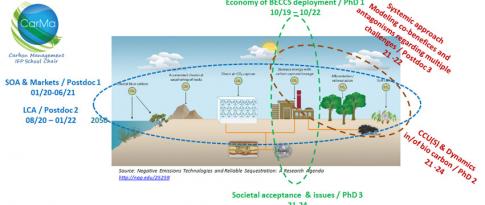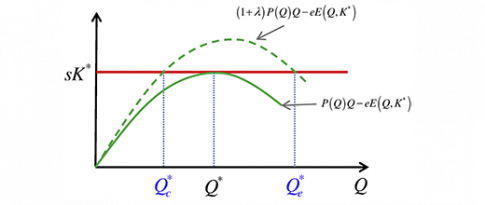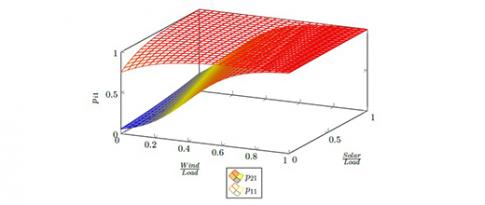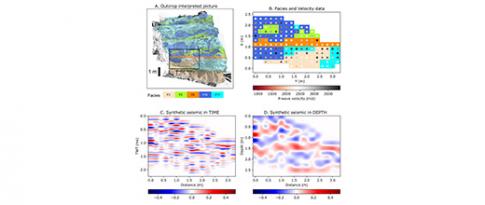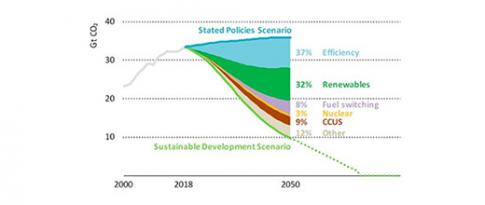09.04.2021
15 minutes of reading

At IFP School, as in any Graduate School, teaching and research activities are mutually enriching. However, the School has a unique feature linked to its nature as a school of specialization: it is an outward-looking organization with a strong focus on the corporate and professional issues. As such, it hosts a diversity of international publics (students, professors, experts, industry representatives, researchers), all passionate about the same industrial and societal issues. By providing the opportunity for original and close interactions between academia and industry, the School is a fertile breeding ground conducive to the development of new ideas.
This issue of Science@ifpen presents the diversity of themes tackled at the School, primarily within the framework of research and educational chairs. It highlights the dynamism and plurality of its research activities, which cover a broad spectrum of scientific fields. The aspect that also emerges from this issue is that the School is not only a place where knowledge is passed on but also one where it is produced, thereby illustrating our ambition to develop educational programs of outstanding quality that are relevant and adapted to the challenges of today and tomorrow.
I hope you enjoy reading this issue.
Christine Travers
IFP School Dean
CarMa Chair: negative CO2 emissions by 2050
Tackling climate change necessarily involves reducing greenhouse gas emissions resulting from human activities, primarily carbon dioxide and methane. The problem is global and the actions required must be implemented within the framework of a systemic approach, with scale effects that are difficult to fully understand. Nevertheless, the Paris Agreement reflects the determination of nations to correct the current trajectory while respecting the legitimate aspirations of emerging countries to raise their living standards.
The “Economics of Natural Gas” Chair: results and outlook
In 2016, IFP School joined forces with Mines ParisTech, Toulouse School of Economics and Paris Dauphine-PSL University to launch an original scientific initiative: the ”Economics of Natural Gas” Chair. The creation of this Chair resulted from a series of observations concerning the scientific and societal relevance of questions related to gas (particularly in the context of the energy transition and the rapid development of new technologies) and the opportunities offered by the complementary nature of the expertise present.
The 48-volts system: mild hybrid with significant potential
Electrification of the vehicle powertrain is one of the keys to sustainable mobility and hybridization with internal combustion engines is becoming increasingly common. In this context, the “48-volt” mild hybrid system is a low-cost, flexible and easy-to-integrate option, with reduced safety constraints and outstanding performances.
Economic modeling applied to the environment and energies
The period 2012-2020, during which IFP School hosted the teaching and research Chair dedicated to this theme was also a period of fundamental change in terms of economic analysis of the environment and energy, with an increased interest in issues related to sustainable development.
From outcrop to reservoir: thanks to seismic waves!
Seismic imaging remains an important tool in the characterization of geological reservoirs. In the case of carbonate reservoirs, the biological origin of the sediments, as well as their transformation over time through diagenesis , results in numerous structural heterogeneities.
Review of a Chair on “thermodynamics for biomass fuels”
Unlike hydrocarbons of fossil origin, the molecules derived from biomass are polar, due to the heteroatoms they contain. This difference on a molecular scale induces a more complex macroscopic behavior that must be taken into account when designing the processes where such mixtures are encountered.
SPOTLIGHT ON CLIMATE OBJECTIVES - A highly over-estimated contribution of energy efficiency?
In its “sustainable development” scenario, the International Energy Agency (IEA) considers energy efficiency to be the primary lever for reducing CO2 emissions (see diagram). The Intergovernmental Panel on Climate Change (IPCC) also considers energy efficiency as a key element of the ecological transition. (...) But this strategy could prove to be flawed in that it disregards a phenomenon that has long been at work to counteract the benefits of energy efficiency: the “rebound effect”.






